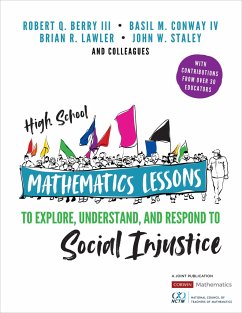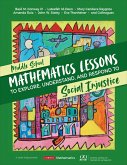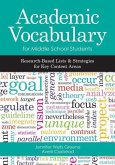Empower students to be the change join the teaching mathematics for social justice movement!
We live in an era in which students have through various media and their lived experiences a more visceral experience of social, economic, and environmental injustices. However, when people think of social justice, mathematics is rarely the first thing that comes to mind. Through model lessons developed by over 30 diverse contributors, this book brings seemingly abstract high school mathematics content to life by connecting it to the issues students see and want to change in the world.
Along with expert guidance from the lead authors, the lessons in this book explain how to teach mathematics for self- and community-empowerment. It walks teachers step-by-step through the process of using mathematics across all high school content domains as a tool to explore, understand, and respond to issues of social injustice including: environmental injustice; wealth inequality;food insecurity; and gender, LGBTQ, and racial discrimination. This book features:
Content cross-referenced by mathematical concept and social issues Downloadable instructional materials for student use User-friendly and logical interior design for daily use Guidance for designing and implementing social justice lessons driven by your own students unique passions and challenges
Timelier than ever, teaching mathematics through the lens of social justice will connect content to students daily lives, fortify their mathematical understanding, and expose them to issues that will make them responsive citizens and leaders in the future.
Hinweis: Dieser Artikel kann nur an eine deutsche Lieferadresse ausgeliefert werden.
We live in an era in which students have through various media and their lived experiences a more visceral experience of social, economic, and environmental injustices. However, when people think of social justice, mathematics is rarely the first thing that comes to mind. Through model lessons developed by over 30 diverse contributors, this book brings seemingly abstract high school mathematics content to life by connecting it to the issues students see and want to change in the world.
Along with expert guidance from the lead authors, the lessons in this book explain how to teach mathematics for self- and community-empowerment. It walks teachers step-by-step through the process of using mathematics across all high school content domains as a tool to explore, understand, and respond to issues of social injustice including: environmental injustice; wealth inequality;food insecurity; and gender, LGBTQ, and racial discrimination. This book features:
Content cross-referenced by mathematical concept and social issues Downloadable instructional materials for student use User-friendly and logical interior design for daily use Guidance for designing and implementing social justice lessons driven by your own students unique passions and challenges
Timelier than ever, teaching mathematics through the lens of social justice will connect content to students daily lives, fortify their mathematical understanding, and expose them to issues that will make them responsive citizens and leaders in the future.
Hinweis: Dieser Artikel kann nur an eine deutsche Lieferadresse ausgeliefert werden.








